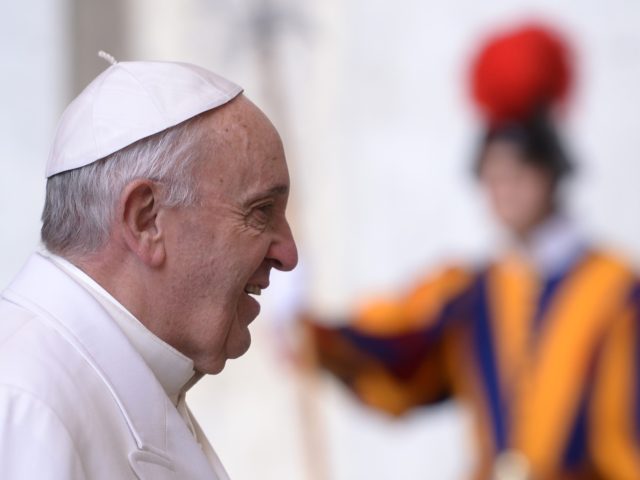ROME — The Vatican announced Monday that Pope Francis will make a three-day visit to Iraq in March as a show of support for the nation’s beleaguered Christian community.
Vatican spokesman Matteo Bruni said in a statement that the pope, at the invitation of the Republic of Iraq and the local Catholic Church, will make an Apostolic Journey to the country from March 5-8, 2021, with several stops along the way.
Francis will visit Baghdad, the plain of Ur — birthplace of Abraham— and the city of Erbil, as well as Mosul and Qaraqosh in the plain of Nineveh, Mr. Bruni said.
In 2014, the Islamic State captured the Nineveh Plain and later set up its regional headquarters in Mosul, before eventually being ousted in the summer of 2017. Christians celebrated Christmas in Mosul in December 2017 for the first time in three years.
Chaldean Archbishop Bashar Warda of Erbil warned in August 2019 that cyclical Islamic assaults will inevitably lead to the extinction of Christians in Iraq.
The Islamic State invasion of Iraq in 2014 led to the displacement of more than 125,000 Christians from historical homelands and left the Christian community destitute of homes, employment, and churches, Archbishop Warda said.
“This was an exceptional situation, but it’s not an isolated one. It was part of the recurring cycle of violence in the Middle East over more than 1,400 years,” Warda said, which is leading to the gradual elimination of Christians from the area.
“With each successive cycle the number of Christians drops, till today we are at the point of extinction,” he said. “Argue as you will, but extinction is coming, and then what will anyone say? That we were made extinct by natural disaster, or gentle migration? That the ISIS attacks were unexpected, and that we were taken by surprise? That is what the media will say.”
“Or will the truth emerge after our disappearance: that we were persistently and steadily eliminated over the course of 1,400 years by a belief system which allowed for recurring cycles of violence against Christians, like the Ottoman genocide of 1916-1922,” he declared.
Warda also noted that Christianity has been present in the Nineveh plains in Iraq since the first century AD, whereas Islam arrived many centuries later.
There have been indeed been periods of Muslim tolerance of Christians in the area, Warda declared, but violent persecution always returns.
These moments of toleration “have been a one-way experience: Islamic rulers decide, according to their own judgment and whim, whether Christians and other non-Muslims are to be tolerated and to what degree,” the archbishop said. “It is not, and has never, ever been a question of equality.”
“Fundamentally, in the eyes of Islam, Christians are not equal. We are not to be treated as equal; we are only to be tolerated or not tolerated, depending upon the intensity of the prevailing jihadi spirit,” he said.
“The root of all of this is the teachings of jihad, the justification of acts of violence,” he said.
The Catholic charity Aid to the Church in Need (ACN), which supports persecuted Christians globally, revealed in 2019 that as much as 99 percent of the Christian population of Mosul has disappeared in less than two decades, and Iraq has lost over 90 percent of its overall Christian population.
Prior to 2003, Christians in Iraq had numbered 1.5 million and yet by summer 2019, the Christian population was “well below” 150,000 and perhaps even “below 120,000” ACN said. This means that, within a generation, Iraq’s Christian population has shrunk by more than 90 percent.
Last February, Pope Francis met with six Catholic patriarchs from Lebanon, Syria, Egypt, and Iraq in the Vatican to discuss Christian persecution in the region as well as their mass emigration from the Middle East.
Iraqi Cardinal Louis Raphael Sako told Vatican News at that time that the pope had turned a sympathetic ear to their plight, which includes “persecution, violence, emigration, and fundamentalism.”
During the meeting, the pope spoke of his desire to visit Iraq, which could not take place immediately because of the health situation, proposing “maybe at the end of the year we will see if this will be possible.”

COMMENTS
Please let us know if you're having issues with commenting.